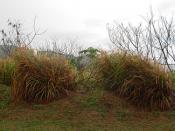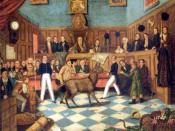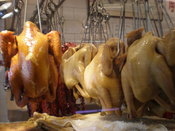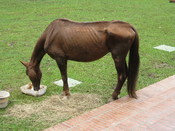Meat. Some of us love it, hate it, eat it, get sick from it, incorporate it into a healthy diet, but in a time when it is not necessarily a necessity for our survival the question arises, is it wrong to eat it? Have we been doing wrong all of our modern existence to eat it? Are our traditional barbecues nothing more than a festival of carnivores, a butchering of the innocent, which is done because, our fathers did it? Indeed, tradition can very often be wrong. Certain factors of life present at one time, caused a necessary decision, which should not be repeated at a later time since the factors have changed. Is this tradition of killing another living breathing creature wrong? Whether viewing life from an evolutionary viewpoint or a religious one, certain acts of inhumanity are always forbidden. Animals live along with us. We need to share the earth with them and treat them with the same respect that any other animal would give another.
When a cheetah stalks a gazelle and kills it, it is a part of nature. When we annually line up 35 million poorly raised cows each year to be butchered, it is cruelty. Looking further into the two examples I bring up, is there no similarity? Cruelty and how nature takes its course are two drastically different ideas. The cheetah killed another being not of its own kind; it will use the meat to feed its young as well as itself. We pull into a McDonalds, order happy meals for our young and something for our self. Similar those two cases may be there is an overwhelming difference that we cannot overlook. In nature the gazelle got to live its life, to graze, to bask in the sun, perhaps have a family of its own. The cow, on the other hand, spent its life traveling thousands of miles at a time, being fed unnatural food saturated with growth hormones, having a scorching piece of iron branded into their skin, and have the last few months of their life spent crammed in a feeding lot with thousands of others like themselves. The air in these feeding lots is so contaminated with dust and bacteria that many of them are infected with respiratory diseases and are forced to lie down in their own manure and waste away. If they survive this life of misery their reward is a trip to the slaughter house, where they will be hung upside down, supposedly stunned, (many of the mechanical blows from a machine are terribly imprecise) and have their neck slit open while their blood drains out - some will experience this while still living. (http://www.factoryfarming.com/beef.htm) The difference is that the gazelle got to be a gazelle while the cow was raised like a product from a factory.
Many are aware this animal cruelty that goes on but many of us still choose to visit fast food restaurants constantly. We still visit the grocery store and without hesitation buy eggs, milk, cheese, beef, poultry, and bacon. When you pour milk on your cereal in the morning, does it cross your mind that the cow's milk that you consume was forced to produce three times what it would have produced with raising a calf of its own? Or when you fry up some eggs for breakfast that the life of the chicken that laid the eggs was spent in a cage so tightly crammed that all of its feathers were rubbed from its body and life was ended by having it's neck slit and thrown into a bleeding hole with other carcasses? (PAWS News editorial 47 - Grocery Store) The problem is our failure to recall there is a connection.
Animals deserve to live a very similar life to what they would have normally led if humans had not interfered on such a large scale. By this I do not intend every animal to be released into the wild and expected to survive, many animals (the cow for example) naturally live on a farm. Through years of breeding these animals have become dependant on us, they need a farm-like environment to live in, because they are farm animals - not resources for a factory.
As consumers we desire to pay the cheapest prices for meat and dairy products. The suppliers will always want to limit the costs of the factors of production so that they can obtain the largest total profit. It isn't brought to our attention when certain meat products are able to sell at such a low price because the animals were treated even worse than the higher priced items. A possible solution to this would be a rating system labeled with numbers. One being the normal life any animal should be entitled to live, and numbers descending from there. There will always be the issue of people not caring, but maybe their interests would change if one of their peers saw them grabbing for a rate 14 poultry product. This system would not only help us make the connection between our food and the animal's life, but something much more significant: what we are eating at one time had a life of it's own - and it was ended so that we could continue to live ours.
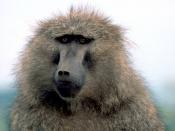
![The Faro Caudill [family] eating dinner in their dugout, Pie Town, New Mexico (LOC)](https://s.writework.com/uploads/5/53383/faro-caudill-family-eating-dinner-their-dugout-pie-town-new-thumb.jpg)
